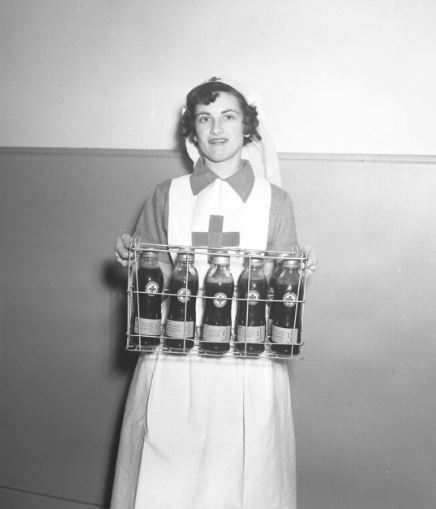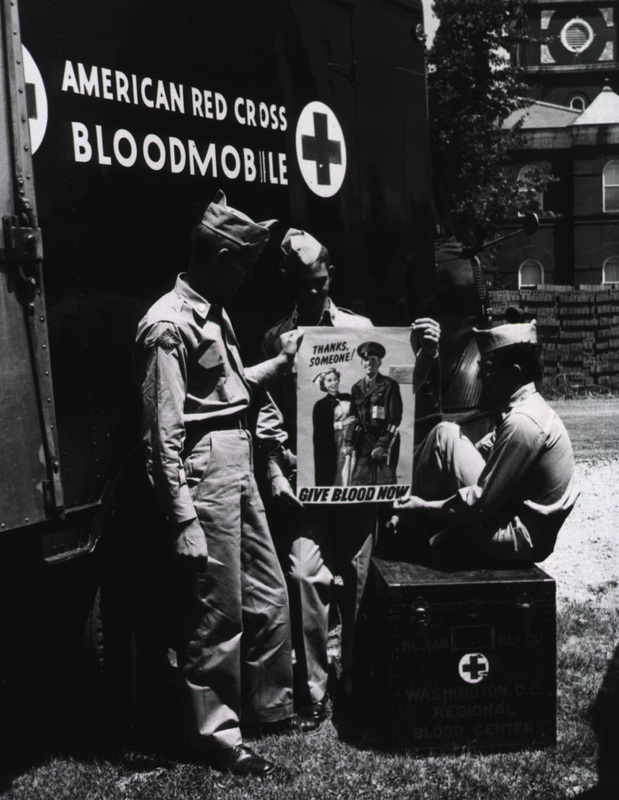Collecting Blood to Save Lives
Have you donated or received blood? If so, chances are the Red Cross was involved. The American Red Cross was one of the first organizations in the country to organize blood collection and still supplies 40% of blood and blood products in the United States.
During World War I, doctors recognized the value of blood transfusions in treating soldiers with combat wounds and shock. However, there was no good system for collecting, transporting, and storing blood. After the war, new medical research enabled the separation of liquid plasma from blood and the drying of plasma to preserve it and make it easier to transport.
Throughout World War II, many Delmarva Red Cross chapters arranged to bring mobile blood donation units, later called bloodmobiles, to their towns. In 1942, the Wicomico Chapter noted that over 1,600 people donated blood in Salisbury through the mobile units that year. With the success of its wartime blood collection program, the Red Cross began the nation’s first civilian blood donor program in 1948.
While the Red Cross did not create a permanent blood collection center in Delmarva, mobile units continued to visit. In July 1953, the Salisbury Times reported that the bloodmobile would be visiting for the fourth time that year to collect blood for the Korean War. The notice also mentions the high participation rate of students from Maryland State Teachers College during previous blood drives.
The Delmarva Chapter of the Red Cross continues to organize mobile blood drives and is actively organizing blood collection for needs related to the COVID-19 pandemic. The Red Cross is the primary organization in the U.S. collecting convalescent plasma from individuals who have recovered from COVID-19. The plasma from recovered patients is being used as a potentially life-saving treatment for those critically ill with coronavirus.


